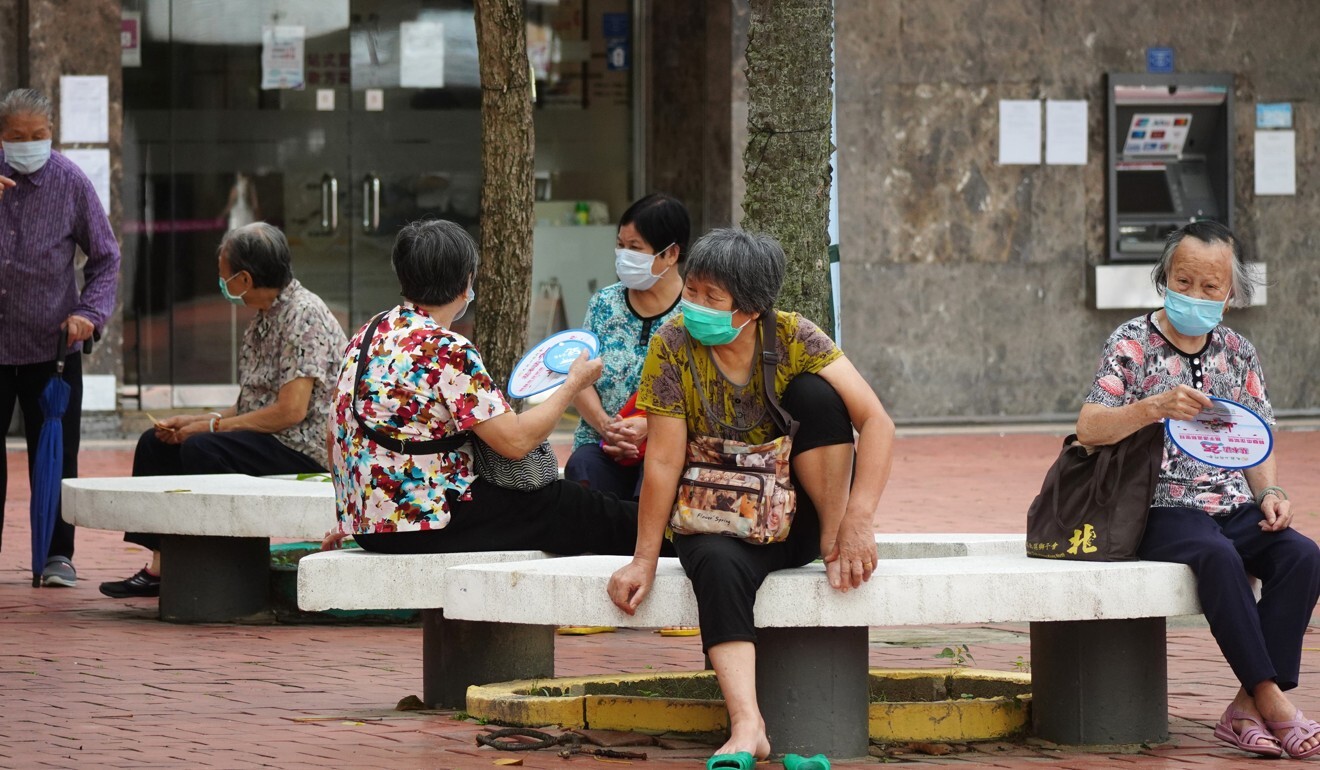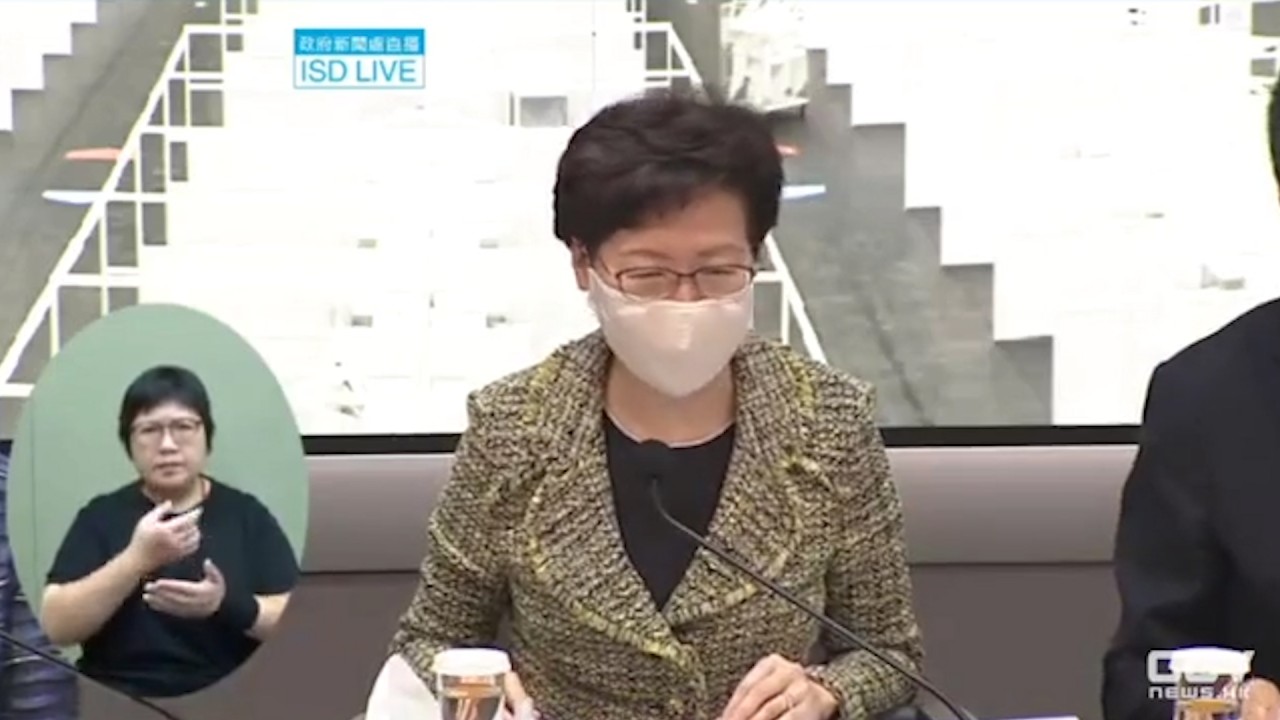
‘More elderly people will die’: grim facts behind Hong Kong’s Covid-19 death surge
- Worst not over yet, say experts who explain elderly are more susceptible to effects of infection and less responsive to treatment
- Underlying health issues bring added risk of complications for older patients
Hong Kong’s sharp increase in Covid-19 deaths over the past month came after more elderly people were infected and succumbed to their illness, including four more on Sunday morning, health experts said.
Of the 47 coronavirus-related deaths as of Friday, 40, or nearly 85 per cent, occurred since July 5, when the third wave of the outbreak began in the city. All but four were aged 70 or older.
Among them were an 84-year-old man and his 82-year-old wife who died in different hospitals.
Another four elderly patients, three women aged 78, 88 and 90, and an 81-year-old man died on Sunday, taking the city’s death toll to 51.
Hong Kong to prioritise new round of Covid-19 testing as Chinese experts arrive
The longest-staying hospital patient who died was a 75-year-old woman who fought the virus for more than four months before she succumbed on Monday.
A medical source said she had to be put on an artificial heart-lung system and although she improved in June, her condition later deteriorated.
A few were admitted to hospital for other health issues and died before being confirmed with the coronavirus.

“This time we have more elderly people and those with chronic illnesses,” said Professor David Hui Shu-cheong, a government adviser on the pandemic, referring to the surge in infections over the past month.
Older people were vulnerable because they had poorer immunity and usually also had existing health conditions that increased their risk of complications and death.
The average age of about 2,500 Covid-19 patients in the third wave of the outbreak since July 5 was 48 years. This was considerably higher than the average age of 36 for patients from March to mid-April, roughly when the city experienced its second wave of infections mainly from imported cases.

02:55
Carrie Lam announces free Covid-19 testing for residents in Hong Kong
Overall, Hong Kong has recorded more than 4,000 infections.
Data from the Centre for Health Protection showed that the oldest Covid-19 patient so far was a 100-year-old woman confirmed to be infected on Monday.
She was among a cluster of 14 infections at the Salvation Army Lung Hang Residence for Senior Citizens, a care home in Tai Wai, in the New Territories.
Experts believe there were more deaths over the past month because of outbreaks that occurred in care homes as well as in parts of Kowloon East with many older residents.
Around 20 care homes, including those for the elderly and the disabled, have reported Covid-19 infections.
So far, four homes have accounted for 18 deaths, including nine linked to the Kong Tai Care for the Aged Centre Limited in Tsz Wan Shan and seven from Cornwall Elderly’s Home (Golden Branch) in Tuen Mun.
Deaths from elderly care homes made up more than a third of all Covid-19 deaths so far.

In the areas with more new patients, 20 who died lived in Wong Tai Sin district, followed by eight in Tuen Mun.
Data from the Census and Statistics Department for 2017 showed that Wong Tai Sin had the highest proportion of people aged 65 or older across Hong Kong.
Hui said elderly people were susceptible to infection if they lived in a community with active transmission of the virus, suggesting they might not be aware of proper hygiene practices or the need to wear a mask throughout the day.
Infectious diseases specialist Dr Joseph Tsang Kay-yan said residents of care homes who rely on staff for help in their daily lives were at risk too.
“If a care home worker is infected, the elderly residents could be infected during feeding, changing diapers and showering, all activities of close contact,” he said.

Explaining the added risks from underlying health issues, he said that when an elderly person is infected with Covid-19, common chronic conditions such as hypertension, diabetes and kidney problems could easily lead to complications.
Those with long-term cardiovascular diseases or diabetes, for example, were more prone to a condition in which their immune system could go out of control, causing inflammation in the lungs and possible death.
Hong Kong’s third wave of Covid-19 kills two more elderly patients
The two doctors expect more Covid-19 deaths among the elderly in Hong Kong, as these patients were more likely to receive comfort care rather than aggressive treatment when severe conditions developed.
The Hospital Authority revealed over the past month that family members of at least eight elderly patients who subsequently died agreed that they should not be resuscitated if their condition worsened.
“Those with dementia or who had multiple strokes are unlikely to go for resuscitation,” Hui said.
Such patients would be given antiviral drugs and oxygen support, but were unlikely to remain in the intensive care unit. Their responses to medication were also not as good as in younger patients.
Looking forward, he did not think the worst of the pandemic was over for Hong Kong’s older patients.
“The third wave does not appear to be ending soon. It is expected that more elderly people will die,” he said.

